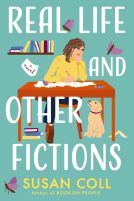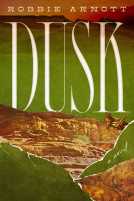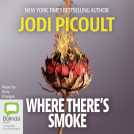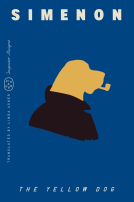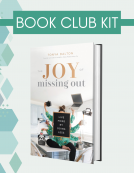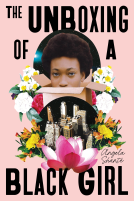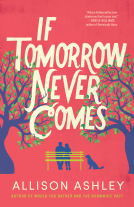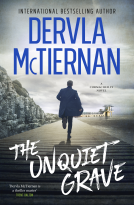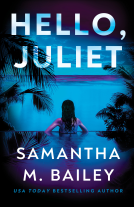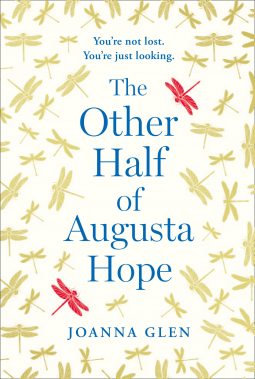
The Other Half of Augusta Hope
by Joanna Glen
This title was previously available on NetGalley and is now archived.
Send NetGalley books directly to your Kindle or Kindle app
1
To read on a Kindle or Kindle app, please add kindle@netgalley.com as an approved email address to receive files in your Amazon account. Click here for step-by-step instructions.
2
Also find your Kindle email address within your Amazon account, and enter it here.
Pub Date Jun 13 2019 | Archive Date Jun 14 2019
HarperCollins Publishers Australia | The Borough Press
Talking about this book? Use #TheOtherHalfOfAugustaHope #NetGalley. More hashtag tips!
Description
’A mesmerizingly beautiful portrait of a young woman discovering what home means to her’ Sarah Haywood, author of The Cactus
‘A uniquely heartening and hopeful story about pain, the solace of words and our search to belong’ Jess Kidd, author Himself and Things in Jars
‘An extraordinary masterpiece’ Anstey Harris, author of The Truths and Triumphs of Grace Atherton
YOU’RE NOT LOST. YOU’RE JUST LOOKING.Augusta Hope has never felt like she fits in.
At six, she’s memorising the dictionary. At seven, she’s correcting her teachers. At eight, she spins the globe and picks her favourite country on the sound of its name: Burundi.
And now that she's an adult, Augusta has no interest in the goings-on of the small town where she lives with her parents and her beloved twin sister, Julia.
When an unspeakable tragedy upends everything in Augusta's life, she's propelled headfirst into the unknown. She's determined to find where she belongs – but what if her true home, and heart, are half a world away?
_____________________________________________________________
AUGUSTA MAY NOT FEEL LIKE SHE FITS IN, BUT READERS ARE FALLING IN LOVE WITH HER…
‘What a beautiful moving book…one that will stay with a lot of readers long after closing the last page’ Karen W
‘What a brilliant, brave, clever book’ Maddy P
‘A beautiful tale of family, of loss, of the awkward relationships we build with those we love the most…a must read!’ Amelia D
‘A powerful novel about fitting in, loss, and the people you really have connections with’ Siobhan D
‘This book gave me all sorts of feelings!’ Nia I
‘God what a book! I couldn’t put it down but didn’t want it to end’ Natasha P
‘The story made me laugh and cry in equal measure, and now it's finished I'm at a slight loss as what to read next’ Laura W
‘I loved this book from the very first line…It’s totally original, deeply moving and something really special’ Katherine W
‘A thoughtful and warm-hearted read…I loved it!’ Joy L
‘I laughed, I cried, I fell in love’ Elizabeth T
Available Editions
| EDITION | Other Format |
| ISBN | 9780008314163 |
| PRICE | £12.99 (GBP) |
Featured Reviews
 Bookseller 388578
Bookseller 388578
I really enjoyed this book! I think the plot was very comprehensive, and the characterization deep. I especially liked the way the writing was evocative and helped you feel and think the same way the characters did! - All in all an excellent book, everyone should read it!
 Carolyn S, Reviewer
Carolyn S, Reviewer
This is the story of a young woman called Augusta Hope who first loses and then finds her other half. Born a twin, Augusta feels she doesn't fit in to the small town in England where her family are happy to live and dreams of escaping to more exotic places. She loves words and reading and asks too many questions. Even her parents think she is weird and wonder why she can't be more normal like her twin Julia, who is her only friend and supporter.
On the other side of the world, a young boy called Parfait is growing up amongst civil war and poverty and dreaming of a better life for himself and his family. Augusta and Parfait will both suffer unimaginable tragedies as they search for a place to be themselves and finally call home.
This was a gorgeous book, very beautifully written with Parfait's alternating narratives mirroring Augusta's. At times humorous, this is not a light hearted read as it deals with some serious issues, but it will definitely pull at your heart strings as these two young people struggle to find their place in our modern world.
#TheOtherHalfOfAugustaHope #NetGalley
Augusta Hope is a unique character. Born the second twin, after midnight so she and her twin have birthdays in different months, named for said month is a logophile, a lover of words. She fills her mind with big and small words and has a penchant for Latin and Spanish. She thinks Burundi is the best named country, wants to go to Spain, is kind to the boy next door who is developmentally challenged, questions everything and exasperates her parents. Her home is her twin sister, her polar opposite in many ways.
Parfait is on of nine siblings living in Burundi. He is hopeful, a dreamer and tenacious. He suffers much loss in his young life but doesn’t allow it to scare him from his dream of escape.
Much of this is told from Augusta’s point of view as an adult, writing about her youth. Intertwined with her memories is brief insight into Parfait’s tumultuous life.
This book takes a bit to get going but around the 20-20% mark hit hits with an emotional oomph that keeps you reading these tales of love, loss and tragedy.
This is a book that you find yourself thinking about days after you read it.
 Marianne V, Reviewer
Marianne V, Reviewer
“‘So where is all that time, Augusta?’ he said. ‘Perhaps we’ll find it in heaven,’ I said, which was a surprising thing to say, and came out of my mouth without me thinking about it. ‘Or would it be hell?’ said Mr Sánchez. ‘If you found the past, all piled up by the side of the road. All the things you’d ever said. All the things you’d ever thought. All the things you’d ever done.’”
The Other Half of Augusta Hope is the first novel by British author and teacher of Spanish, Joanna Glen. In the beginning, the other half of Augusta Hope is, of course, her (by minutes) older twin sister, Julia. For twin sisters, they are very different, in appearance and character. “Julia, fair, quiet and contained, happy inside herself, inside the house, humming; and me, quite the opposite, straining to leave, dark, outspoken, walking in the wind, railing.”
Still, they are each other’s home, much more than the house at Number One Willow Crescent, Hedley Green. “You feel her tears before they fall – and you want to stop them, you so want to stop them, though you can’t, that’s the truth of it. You hear her laugh before it comes, and hearing her laugh makes you laugh too. Her lovely bright laugh. In this way, your twin is your home.”
But something in that lifelong connection breaks after a certain vacation morning in La Higuera, Spain. For a long time, Augusta just doesn’t know why. To Augusta, La Higuera feels more like home than Hedley Green, but it's where the sparkle disappeared from Julia’s eyes.
Meanwhile, in Burundi, the never-ending violence and bloodshed and political upheaval has Parfait Nduwimana deciding that he will seek peace in Spain. His devoted younger brother, Zion does not hesitate to accompany him. Their plan is to walk to Tangiers, then borrow a boat to cross to what they are convinced will be paradise.
With these twin narratives, Glen tells a story of two people whose need to escape eventually sees their paths cross, if ever so fleetingly at first. Glen’s characters are no stereotypes: they have depth and develop as they deal with life’s challenges. Young Augusta, precocious, fascinated with words and language, and given to unfiltered comments on life, is quirky and funny; adult Augusta, sometimes a bit prickly and insensitive, is not instantly appealing, but by the conclusion, is likely to have grown on the reader.
Although the story progresses over some two decades from the nineties, with their attitudes and mindset, Stanley and Jilly Hope seem to be firmly stuck in the sixties. But Augusta wonders “isn’t it the job of mothers and fathers to love first, and to love equally, and to love better than their children? Or was I supposed to help them love me by being what they wanted me to be?” She realises for that she would need to be Julia.
Glen’s prose is often exquisite: “Burundi Burundi Burundi. I said it so many times it stopped meaning anything. It was like the sea lapping against my mind” and “the hat-man with the ponytail moved to a stool over in the corner, and he closed his eyes, and he opened his mouth, and he started to sing, and his voice split up into strands, fraying, as if there was blood on his vocal cords, or in his heart. The man in the vest picked up his guitar, which turned out, indeed, to be a living thing, and a woman appeared from behind the curtain of a doorway, with a black shawl around her shoulders, holding her skirt. She started to dance” are examples.
She gives her characters words of wisdom: “the people we like, and might even love, will still disappoint us – in the same way, I suppose, as we disappoint them” and insightful observations: “Our grieving was an exchange of cakes through the winter because sometimes the only things you can do in response to big things are small things”, also “‘It’s weird the way we keep our brains in our pockets now,’ I said. ‘Do you think our brains will gradually evolve to hold less and less information? And soon we’ll be Neanderthals again but with iPhones?’”
The plight of refugees, Spanish poetry, a hundred-year-old gypsy caravan, painted tin daffodils, and evocative art feature in this tale. Death and disability, resulting in copious grief and guilt and heartache, lends a rather dark and sad aspect to the middle of the story, but the uplifting ending is truly wonderful: hopeful and heart-warming.
This unbiased review is from an uncorrected proof copy provided by NetGalley, Harper Collins Australia and The Borough Press. The erratic formatting in the kindle version of this review copy will doubtless have been corrected in the final version and does not really affect the reading experience.
 Lorraine C, Reviewer
Lorraine C, Reviewer
“The Other Half of Augusta Hope” is deeply moving novel, in a way that includes joy and hope as well as a deep sadness. Be careful where you read it; I was reading it while waiting for school pickup, and had to explain floods of tears to small children.
Augusta grows up in England with her twin sister Julia, and her parents Stanley and Jilly Hope. She has a very ordinary childhood; so ordinary that she is constantly restless, wanting something more and different. Not that she knows exactly what that is; she just knows she wants it. Augusta loves words and loves learning and visibly chafes against the constraints of her life. Pretty much everyone in her little village – including her parents – regard her as a little strange, and definitely hard to understand.
Julia fits in much better, and gets along peaceably and serenely. She doesn’t want much more than what she has; her ambitions don’t extend much further than the boy next door. She loves Augusta unquestioningly, knowing she doesn’t fully understand her.
Meanwhile, in Africa, Parfait is growing up in war-torn Burundi. Like Augusta, he wants something different – something better. But he has a pretty good idea what he wants. Peace. For people in his family to stop dying. To find some hope for the future.
The novel follows Augusta and Parfait as they grow up in parallel, in very different places and lives. This is cleverly done, alternating between the two and simply depicting what’s happening to each. The reader is left to draw their own comparisons and conclusions, and it’s all the more effective for that.
The characters are vivid and strong. While we live primarily in Augusta and Parfait’s heads, through them we see a cast of strongly drawn and realistic characters. We believe in these people, and Glen is astonishingly good at making us feel with them. That’s where the power of the novel really comes to the fore. We weep with them, we wince with them, we love with them, we rejoice with them. The novel draws you into the characters’ emotions in a way few writers can achieve.
Although “The Other Half of Augusta Hope” made me deeply sad in places, it also showed a good deal of hope. There are so many layers to this novel that I can’t imagine anyone reading it and coming away with nothing. Highly recommended for anyone with a heart, or a relationship of any kind with another person.
 Kristy B, Reviewer
Kristy B, Reviewer
I knew nothing about this one before I started and have been blown away by just how much I loved this book!
The Other Half Of Augusta Hope has a dual narrative, split between Augusta, a young girl from England with a twin sister with whom she is very close and Parfait, an African man desperate to leave his home and make it to Spain.
The writing in this book is just lovely, it’s lyrical. This book was much deeper than I expected, I fell in love with the characters, felt their pain and shared their joy. There is a lot of tragedy but also hope.
I highly recommend this book and I’ll be keeping an eye out for future work from author Joanna Glen.
Thank you to @harpercollinsaustralia and @netgalley for this review copy.
.
 Nyssa S, Reviewer
Nyssa S, Reviewer
The Other Half of Augusta Hope is written about two twins, Julia and Augusta, who couldn't be any more different. While Julia is pretty, calm and happy with her life, while Augusta is strange, inquisitive and eager to escape their world. Augusta feels at odds with her family, and struggles with acceptance, all the while forming a close bond with Burundi. Despite their differences, the bond forged between them is strong, they do everything together and share everything. That is, until a family holiday in Spain, where a mysterious event sees Julia becoming withdrawn, and leaving Augusta guessing about what unfolded that day on the beach.
The story is told from two narratives, Augusta, and Parfait who is trying to escape the violence and blood shed in Burundi with his family, each chapter bringing the pair closer together, till their paths cross. Briefly at first, but when they do finally collide, and Augusta finally learns the consequences of that fated day in Spain.
I really enjoyed The Other Half of Augusta Hope, it had me in tears, and took me on an emotional roller coaster that I was all too happy to go on. I found myself relating all too well with Augusta and her nomadic quirks, and the story wrapped up beautifully in the end.
* This eBook ARC was provided by HarperCollins Publishers Australia through NetGalley for an honest review.
This book. These words. You know how sometimes you finish a book and you actually want to hug it? That.
Before I began reading The Other Half of Augusta Hope, I had no inkling I was going to adore it so much.
In my mind it had three things stacked against it from the start:
1. I was forced to read it on my phone, which is not my favourite way to experience a book.
2. The synopsis (above) made me afraid it might be some kind of coming-of-age romance. Not that there’s anything wrong with that, but it’s not my cup of tea.
3. I have been reading a lot of fast-paced genre fiction lately and thought this might not hold my attention in comparison.
I had nothing to worry about.
From the very first page, I fell in love with Augusta and her head filled with words. And her family, so ordinary and yet so vivid. And then I fell for Parfait, too, living a completely different life, so far away. I began to notice the strange echoes of similarity bouncing back and forth between them. This repetition of concepts and images and themes is one of the many joys of this novel. The letter X, butterflies, fish, a girl spinning around, dragonflies, so many, many others, all perfectly placed so you just catch them out of the corner of your eye, like little shells you want to pick up and slip into your pocket as you walk along. Secret treasures.
And the writing is wonderful. Smooth enough that you can skim effortlessly over it, yet so finely crafted that you want to linger.
But the characters are the heart of this story. Here’s Augusta:
"Burundi. Burundi. Burundi. I said it so many times it stopped meaning anything. It was like the sea lapping against my mind…
For days, I went around chewing Burundi like you might chew gum. Burundi, I discovered, was a big, capacious word, and it stretched, stretched. Because Burundi meant a million things."
And here’s Parfait:
"She reminded me of a bird, my mother. I loved to spot birds when I was out and about: the hoopoe, or the Malachite kingfisher, or my favourite, the Fischer’s lovebird - a little rainbow-feathered parrot which used to bathe in the stream up above our homestead.
“That bird is so…” I said.
And my father said, “Unnecessary.”
Which I suppose is what beauty is.
Yet later I found I couldn’t live without it."
The characters are so… themselves, I suppose. So real. Augusta’s mother and her father, her sister. Parfait’s parents, his brothers, the priest Victor, so many others. I felt I knew them all. I kept nodding in recognition: “Yes, that’s just him.” “She would do that, I can just see it.”
I don’t want to say anything about the plot. I wouldn’t want to spoil the story for anyone. I’ll just tell you that there are happy events, heartbreaking events, funny parts and enough suspense to make the last quarter hard to put down.
This is Joanna Glen’s debut novel. Whatever she writes next, I'll be reading it.
A digital A.R.C. of this novel was supplied to me by #Netgalley and #TheBoroughPress in exchange for an honest review.
 Evan B, Reviewer
Evan B, Reviewer
The Other Half of Augusta Hope is a heartfelt novel telling the story of two people with very different lives but remarkably similar dreams.
I have to say that on starting this book, I was not overly drawn in. It was not an instant attachment to the characters or where their story could be heading. This was more of a slow burn. I got to know the characters over time, and felt more strongly about them over the passage of time - as they grew, and filled out into who they were.
In the end, the journey was worthwhile, and I found myself feeling the emotional force of the novel to the point where it left me reeling. It is not the kind of book I want to read every day, but sometimes, you need a book that stays with you after you finish it.
The more I think about The Other Half of Augusta Hope the more the story really hits me. I was not sure about it at first, it felt slow and I was a bit unsure where this was going to go. The writing is not your usual style, a lot of poetry and different languages. But that is the whole point - Augusta Hope is not your usual type of girl . This book is definitely a grower. It is emotional, funny and sad and very clever.
Augusta is a twin - but born in August where her twin Julia was born in July. The girls could not be more different. Augusta has never fit in - her idea of fun is reading the dictionary and learning new words, At a young age she decides that Burundi is her favourite country and sets out to learn all she can about it. Her life is a rollercoaster of events. We also hear about Parfait - a refugee from Africa who escapes a dangerous life to Europe to begin again. Told from alternative points of view we learn so much about their lives and feelings..
This book is definitely worth a go - and sticking with. Thanks to Harper Collins Australia and Netgalley for my advanced copy of this book to read. All opinions are my own and are in no way biased.
4.5 stars for me
I loved this one. It's a very strong debut release and I will definitely be seeking out more work from this talented author.
This one was at times humorous in a dry way but I would not call it a lighthearted story. I loved the dual stories we experienced with both Augusta and Parfait sharing their tragedy and their journey. It's very different to what I usually read but it had me captivated the whole time.
It's a beautifully emotional story and I will definitely be recommending it to friends.
 Melinda R, Reviewer
Melinda R, Reviewer
I have to say I thoroughly enjoyed this book. It is so cleverly written.
I don’t know if this is a style but I would call it like a statement style of writing. Almost poetry written.
It’s written in third person, there’s no chapters and it’s based on a twin named Augusta and a refugee from Burundi called Parfait. It takes a little to get into. Augusta is exceptionally smart, weird almost and quirky comes out with the most profound things, has no filter. Enjoys reading the dictionary when she stressed as it calms her. Parfait escapes Africa with his brother crosses the Mediterranean Sea to Spain. Starts his life at 14 years of age in Seville. The book had so many different elements to it. And lots of different feelings from smiling to crying, empathy to embarrassment, mostly for Augusta. You just have to read it to comprehend how wonderful this read is.
‘My sister, born in July, was named Julia; I, born in August, would be Augusta.’
Julia and Augusta Hope are twin sisters, born either side of midnight on the 31st of July. They are very different in appearance, character and temperament. Julia is amenable, content and fair while Augusta is dark, outspoken and questioning. Augusta dreams of escaping the small town of Hedley Green in the UK where she and Julia live with their parents, Stanley and Jilly Hope. Augusta is precocious. She is fascinated by words and language. At the age of six she is reading (and memorising) the dictionary and at the age of seven she is correcting her teachers. At the age of eight, she spins the globe and decides that Burundi is her favourite country, based on the sound of its name.
But throughout their childhood, Augusta and Julia are close, and for much of the first part of the novel, Julia is the other half of Augusta Hope. The family travels to La Higuera in Spain for a holiday. Something happens which damages the connection between Augusta and Julia, but Augusta does not know why.
As an adult, still living in Hedley Green, Augusta’s life is turned upside down by tragedy. She sets off to find out where she belongs.
In a parallel story, Parfait Nduwimana decides to leave the never-ending violence and bloodshed and the political upheaval of Burundi behind him by moving to Spain. He is accompanied by his younger brother Zion. Their plan is to walk to Tangiers, and then travel by boat to Spain.
Two stories. Two people, each seeking escape. Augusta and Parfait meet in Spain. Each of them carries some burdens from the past: do they have a future together; can they make sense of their experiences?
This is a beautifully written novel which explores several difficult themes, including death, suicide, post-natal depression and war crimes. Both Augusta and Parfait are in search of refuge: Augusta is searching for meaning, while Parfait is seeking safety. While I found the young Augusta more appealing than the adult Augusta, by the end of the novel I could appreciate how she had evolved to meet the challenges before her. And the ending? I finished the novel satisfied.
Note: My thanks to NetGalley and HarperCollins Publishers Australia and The Borough Press for providing me with a free electronic copy of this book for review purposes.
Jennifer Cameron-Smith
 Jo F, Reviewer
Jo F, Reviewer
Augusta and Julia are twins, the only children born to their parents. Their parents own a small retail shop and each year they close for two weeks for an annual family holiday that is carefully planned out for months. They live a very happy, routined, family life. Her father is very British and proud of being a provider for his family.
Augusta and Julia may have shared a womb but they could not have turned out more different. Julia is pretty much the perfect daughter, she does okay in school and hopes to one day fall in love, marry, have children and live in her hometown with her husband. Augusta cannot wait to one day leave her family home and see the world. She has a thirst for learning and loves to read. In fact, reading the dictionary gives her immense pleasure, especially when she discovers a new word.
Augusta is a challenging child for her parents as she has always questioned things and loves to spout off random facts about the things she has read about. She is learning to speak three other languages and plans to write a novel set in a small place in Africa that she once saw on her world globe. She also dreams of one day living in a caravan and travelling all over Spain, whilst writing her book.
We follow the girls as they move from adolescence into adulthood. Augusta heads off to college and Julia marries her high school sweetheart. However, a lot of things happen over the years within their family dynamic and some of them are absolutely heart breaking.
Whilst this story is being told, there is also another one playing out for another family, far away from Britain. We are introduced to Parfait who is desperate to escape Africa and begin a new and safer life for himself and his siblings. Although his story is very different to Augusta’s there are similarities in that they both want to escape the lives they are living into something better.
This story is told in alternating parts and spans over a number of years. The author does a brilliant job intertwining the two stories. I went into this story with no expectations and was unexpectedly blindsided by the emotions I felt. I got completely swept up in this magnificent, unique tale. It is so wonderful to read something completely different and a bit outside my usual genre. Fabulous read!
 Kelly S, Reviewer
Kelly S, Reviewer
This is a bit of an unusual story. I have to admit from the blurb, I wasn't really sure what to expect and even as the story unfolded I really wasn't sure where it was going. This is a story about living life, love and loss. Or perhaps in many ways, it would be more accurate to simply say that this is a story about life. It follows Augusta and her twin Julia from their early days, while at the same time we see snippets of Parfait's life. Of course, these two stories are going to eventually collide and it becomes apparent that they are in more ways than one, two halves of the same story.
What's really odd about this story is that in many ways it's a very sad or melancholy tale, there is a lot that happens that is truly awful for all of the various characters that we meet. Even the good stuff is tempered by decisions or events of the past. The really odd part of this is that despite all of that, there is something that does leave you feeling good when you've read this book. Possibly it's the ending? But I would say that I had that feeling as I read it, there's something about the story overall that just gives you a bit of a contented feeling, or perhaps that's just me.
I went into this book not really knowing what to expect and in many ways, I've come out of it, not really able to fully describe what it is, but knowing that I really enjoyed it,
I received a complimentary copy of this book through NetGalley. Opinions expressed in this review are completely my own.
This is one of those novels where you don’t really know, heading in, what you're truly in for. The blurb gives the impression that this might be one of those stories where the character is sailing along, trying hard to discover who they really are, tragedy strikes its savage blow, levels them, and then before you can blink, they have emerged stronger and surer, knowing exactly who they are in this new and altered universe. It is to a certain extent, but it’s not quite as straightforward as all that either.
“I knew I was weird, but it was a weird I was starting to like now I had black-framed glasses and a blunt fringe and red lipstick and written-on Converse trainers with a mysterious blotchy green rectangle on the left-hand shoe.”
We meet Augusta right at the beginning of her life, born as a twin, yet just after midnight into the freshly minted month of August, giving her a different birthday to her sister, Julia. And from here on in, Augusta lives every second of her life proving herself different to her family, her neighbours, her friends, and pretty much everyone else she meets. She's quirky and clearly smart, but she lacks grace and social skills; at times I found her endearing but this was outweighed by the times I found her wearisome. This was largely exacerbated by my one criticism of the novel: it takes a very long time for the story to reach its point. The unspeakable tragedy doesn’t occur until the 70 percent mark. Up until here, we're really just going along for the ride that is Augusta’s life. This was, for the most part, entertaining, but I won’t lie, it did begin to slump about halfway, giving me pause to wonder where it was all headed. This is a good example of the tediousness of Augusta's verbal outpouring:
“It was Easter, and Julia was arranging her pale pink roses from Diego in a glass jug.
‘Rose thorns aren’t actually thorns. They should be called prickles. They’re where the epidermis bulges outwards,’ I said. Julia nodded. ‘The Romans used to wear roses on strings around their necks,’ I said. ‘Anything said under the rose had to be kept a secret.’ Julia nodded. ‘A rose fossil was found in Colorado which was thirty-five million years old.’ Julia nodded. ‘Did you know that more than 80 per cent of the land in Zambia is covered in roses?’
‘No more,’ said Julia. ‘That’s enough. No more research, Aug. Let me love roses because I do.’
‘Do you honestly prefer not knowing all this stuff?’ I said.
‘We’re just different,’ said Julia.”
Once we reach the tragedy, the novel certainly picks up, but it also speeds up, so there could have been a bit more balance applied to the narrative. I don’t want to spoil the story for readers, but I also think it’s worth noting that there are some heavy themes explored, many of which may trigger some readers: war crimes, death, suicide, post-natal depression, still-birth, disability, grief, and guilt. So it's not a light read, despite how entertaining Augusta often was. Yet the author handles these themes well, weaving them in and out of her story with precision, sometimes cutting deeply, other times with more subtlety. While this story may put you through the ringer, there is so much depth to it, so much to take away from it; it’s definitely worth the heartache.
“Yet it is so ordinary to be born, and so ordinary to die. 350,000 births per day, apparently. And 150,000 deaths. Approximately. Around the world. That’s 15,000 births and 6,300 deaths per hour. 250 births each minute and 105 deaths. Count to one. Four babies have arrived. Count to two. Two of us have left the world. Right now. As you click your fingers. If only we left the earth in pairs. Like animals leaving the ark. Two by two hurrah. Hand in hand. Or died together like roses on the same bush. It would be so much less scary.”
There is another point of view within this story, that of Parfait, who lives in Burundi, Augusta’s favourite country. Parfait and Augusta don't know each other until almost at the end of the story, but we follow Parfait's life alongside Augusta's. Parfait’s story is punctuated with tragedy though, whereas Augusta’s culminates in it, yet as the two of them get older, there almost seems to be some cosmic connection between them. When they do finally meet, their friendship seems pre-ordained; it was an interesting exploration on coincidence and destiny.
“That’s when I saw it. She’d unwittingly got wrapped up in my story. This tragedy wasn’t only mine.”
This was definitely a novel that ebbed and flowed for me but it was well and truly worth reading. It’s beautifully written, and despite all of the heartache, it ends on a hopeful note.
“We walked out into the square in the warm evening air, which tickled my shoulders and smelled of honeysuckle and sea. The cobbles were lumpy beneath my espadrilles, and , as we walked along the beach road, the crickets were summer-crazy in the long dry grass, and the egrets were flying to the big old tree where they loved to perch, hundreds of them, lighting up the dark under the moon.”
Thanks is extended to HarperCollins Publishers Australia for providing me with a copy of The Other Half of Augusta Hope for review.
I can't really define this one as a genre. Contemporary. Romance.
Augusta Hope is one half of a set of twins and this follows the story of her life from when she discovers words at the age of 7 to twenty years later when she discovers love and the magic of Spain.
A bit of Eleanor Oliphant in her precociousness, some Secret History in her pretention and a bit of Eat Pray Love in the story structure and plot.
I kept.coming back to this one for hours on end, even though I had several others on the go
This book centres on family, grief, loss and being true to yourself. Never giving up hope that things have a purpose.
Through the book you follow the life of Augusta Hope who has a twin sister Julia. Julia is everything that her parents want her to be, while Augusta is the stone in the shoe. The awkward one, the inappropriate one, the one who wants to escape her droll English suburb and find 'duende' a Spanish word for 'spirit'. She loves words and maps and sees these as a form of escape.
Meanwhile in an African village in Burundi, Parfait is a young man whose family are tortured, raped, killed by soldiers in a horrific civil war. He too dreams of escape, but at the same time feels duty bound to look out for his younger siblings.
This is a very beautifully told story of despair and the ugly side of human nature, in a way that will make you laugh and cry.
Highly recommended, thank you Netgalley, Harper Collins Publishers Australia and The Borough Press for the opportunity to review this digital ARC.
 Jeanette L, Reviewer
Jeanette L, Reviewer
The author has created two stories from very different worlds running parallel very successfully and keeps the reader in suspense as to when they will finally merge together. It is Augusta's family's dramatic change in everyday life and tragedy that sees her young adulthood grow into one of some wisdom and one that finally merges with that of Parfait's.
Augusta is a twin with Julia but they have different birthdays because Augusta has taken longer to emerge and was born past the stroke of midnight into not only a new day but a new month. Chalk and cheese would best describe them; Julia is pretty, compliant and with a calm demeanor while Augusta is the exact opposite, one of those kids where "why" in their vocabulary is ever constant. Her father's exasperation with her is understandable, she questions and challenges everything. I loved Augusta, ever enquiring, prepared to speak her mind and dropping the odd slang word. Emerging into a teenager, the author has identified so clearly with this time of life and will have the reader splitting their sides with the teenage humour and in particular when "double entendre" is introduced. Augusta and Julia live in a quiet part of England where apart from houses being pulled down for a shopping centre it is an uneventful place. Augusta is a day dream traveller convinced that life has so much more to offer than spending it in the same village, Spain becoming her dream.
In another part of the world Parfait lives in Burundi, war torn Africa, Tutsi and Hutu. He is the eldest of seven children. This is such a sharp contrast to the safe life of the English family. Parfait, the eldest child has watched the death of his parents and slow destruction of his family from the repercussions of war. Understandably he is desperate for a safe place to live and through the influence of a Spanish priest dreams of a life in Spain. His young brother Zion is Parfait's shadow and shares the same dream. Two other surviving brothers, do not share this dream, the travel distance seems impossible and make their own decisions for a future life. Tragedy strikes one more time for Parfait but the strength of his character and determination see him rise above it all.
My thanks to Netgalley and Publishers HarperCollins Australia for the opportunity to read and review this fabulous story, 5 stars.
 Amelia E, Reviewer
Amelia E, Reviewer
Love. Hope. Life. Family. Purpose.
If you loved Where the Crawdads Sing by Delia Owens or Boy Swallows Universe by Trent Dalton then pop this gem on your must read list.
 Fran C, Reviewer
Fran C, Reviewer
A slow burner, but once we got passed the childhood stage, and the emotion became real I really got sucked in to the story.
The book brilliantly captures family life, and how we can hide things so we'll all our lives, whilst them always being there under the surface. Bubbling away.
I really enjoyed reading about Augusta Hope, and her journey.
https://www.goodreads.com/review/show/2817814838?book_show_action=false&from_review_page=1
 Monique W, Reviewer
Monique W, Reviewer
This is review has proven very difficult to write. I've written and deleted more times than I can count and I can't seem to get my words to fully reflect how much I loved reading this book.
Augusta Hope is growing up in middle-class suburban England in the 90s. She has a twin sister, Julia, her father runs a school uniform shop and her mother is a homemaker.
Parfait is from a large family in Burundi. Over the years the civil war in his country has robbed him of so much that he loves and he decides to take his younger brother Zion to Spain for a better life. But things don't go as planned.
Somewhere along their life journeys Augusta and Parfait's paths cross, but perhaps not in the way you might expect. Their journeys aren't that straightforward.
This novel explores love, loss, mental illness and the idea of happiness, what it really is, and how we can achieve it. Joanna Glen writes so realistically about relationships and their intricacies, what it's like to be unhappy, and the raw reality of loss. I cried more than once reading this novel, yet throughout story there's a thread of hope that keeps you going to the rewarding end.
I thoroughly enjoyed this novel and would recommend it to anyone who loves to read about real relationships, about someone who doesn't fit in finding their place in the world and the redemption that can be found through love. Lovely story - 5 stars.
 Victoria S, Educator
Victoria S, Educator
*Thanks to NetGalley and Borough Press for providing this ARC in exchange for an honest review.* I must start by saying what a beautiful book this is. The prose is so lyrical and I was fascinated by the protagonist, Augusta Hope's way of looking at the world. Here are just a handful of the quotes that jumped out at me:
'I didn’t bother to talk about the fact that love might be the hugest word there is in the world and that we would never, across a whole lifetime, work out what it meant.'
'None of us can ever imagine being someone else. Isn’t that why being human is lonely? Because however many words there are in a language, they never express the actual thing, the actual feeling, the actual being ourselves?’
'Where no foreign journalists came. Because people in their sitting rooms in the West had had their fill of Rwanda. And didn’t have the stomach for any more.'
'Our grieving was an exchange of cakes through the winter because sometimes the only things you can do in response to big things are small things.'
It is hard to describe the plot of 'The Other Half of Augusta Hope' as it is so different to any other book I have read. It is the story of the Hope family. A mother, a father (who I couldn't stand!) and their twin daughters, Julia and Augusta. It is the story of the lives of this family and their neighbours in Willow Crescent. However, it is about so much more. It is not just about England, but about Burundi and Spain, too. About ideas and feelings that are too big to put into words. About growing up and loss. Augusta reminded me a little of a character in my favourite novel - Scout from 'To Kill a Mockingbird', so I feel I was already predisposed to like her. I would love to meet August in real life. Or Scout, for that matter!
This is a beautiful and timely book. Read it, you won't regret it.
 Nikki A, Reviewer
Nikki A, Reviewer
An absolutely spell-binding tale, The Other Half of Augusta Hope will hook you from the very first page and refuse to let you go. Augusta herself is a fantastically drawn character - brilliant, sharp, observant and so very likeable despite (or possibly because of) her many imperfections.
Despite tackling serious topics and covering heartbreaking moments, the story somehow remains warm and even genuinely funny at times. It's ultimately a beautiful story and one I could not recommend more strongly.
 Helen H, Reviewer
Helen H, Reviewer
‘There are places–aren’t there? Places which are so full of feeling you hardly dare return to them. I wonder which place it is for you.’
This is really a rather extraordinary book. Upon completion, events remains with you and the significance of the message grows stronger. At first it seems a little ‘left of centre’, especially considering the rather unique style of writing. Then you begin to realise that is the whole point - Augusta Hope is ‘left of centre and a most unique character. This book will grow on you as it is clever ... and funny ... and sad. Very sad.
‘I didn’t bother to talk about the fact that love might be the hugest word there is in the world and that we would never, across a whole lifetime, work out what it meant.’
The story revolves around Augusta Hope, a twin, who feels she simply does not fit in and dreams of escape to more exotic locations. She is a logophile - a lover of words - and is always asking questions. Her parents find her hard to understand/appreciate, however her more mainstream twin, is her champion.
‘Don’t you want to be extraordinary?’ I said. ‘To have an extraordinary life?’
‘I’m happy to be ordinary,’ said Julia.
Running parallel to Augusta’s story is that of Parfait - a young boy growing up in wartorn Burundi, who likewise dreams of a better life. The story of his journey will break your heart, as indeed, both Parfait and Augusta experience life changing occurrences. The constant thread through both of these tales in Joanna’s writing, it really is exquisite. Words of wisdom literally fly off the page in a highly unique yet beguiling way. The range of topics she fears not to embrace - plight of refugees and postpartum depression, to name but two - is full of courage.
‘None of us can ever imagine being someone else. Isn’t that why being human is lonely? Because however many words there are in a language, they never express the actual thing, the actual feeling, the actual being ourselves?’
As you follow along the journey’s of Augusta and Parfait - from childhood through to adulthood - you will be moved by their struggles as both strive to find a place that is right for them in this world. This is a story that has a little of everything - some laughter, lots of love and simultaneously, great and overwhelming sadness - all surrounded in a cloak of serendipity. You will laugh ... you will cry ... but you certainly will not regret stepping into the world of Augusta Hope.
‘I always had some kind of ache inside me,’ said Parfait.
‘Me too,’ I said. ‘I didn’t know anyone else had that ache.’
‘I always assumed everybody had it,’ he said.
We were talking fast now, our words crashing against each other.
‘I thought I’d been born into the wrong life,’ I said.
This review is based on a complimentary copy from the publisher and provided through NetGalley in exchange for an honest review. The quoted material may have changed in the final release.
You can find this review and all of my others over at www.readbookrepeat.wordpress.com
I received a copy of this book from the publisher, Harper Collins Publishers Australia, and the author via netgalley in exchange for an honest review.
Augusta Hope has always loved words, since she was first able to speak them or read them. She loves words like other people love sweets. At six she was reading the dictionary, memorising all of the different words and their meanings. When she's eight, she spins the globe in the library and picks her favourite country - Burundi. Augusta has always felt like she never quite fit in. Her twin sister, Julia, and her are raised in a small town called Hedley Green, on Willow Court. When the other people in the court were shying away from Graham Cook because of his disability, Augusta was doing all she could to make him feel like he had a friend and wasn't alone. While Julia was getting a boyfriend and starting her journey into the land of love, Augusta was dreaming of a place that she could fit in. They've always been inseparable, until tragedy strikes, then Augusta is left trying to find her 'home' which is not a place, but a person. What if that person is half a world away?
This book made me feel ALL OF THE THINGS!! At first, I wasn't a hundred percent sure that I was going to like it. It's written in such a way that I'm just not used to. The story starts when the twins, Julia who was born in July, and Augusta who was born in August, first come into the world. The story quickly progresses through the earlier years as Augusta chronicles how she was different to everyone else in her court. Memorising the dictionary at six, picking a country in Africa that she'd never heard of before, as her favourite when she was eight. The memorising of facts and information that her mother and father never wanted to know. Reading poems that made them cringe or made Julia ask her to stop. She was always searching from a very young age, and we can see this right off the bat.
The POV switches between Augusta in England, to Parfait in Africa, and back again. Alternating between each other as their stories seem to run parallel. We get a glimpse at the tragedy and heartbreak that people in Africa experience every day, but we never hear about. Contrasted with the problems and issues that a comfortable girl who lives in England experiences. Neither issues that are raised outshine the other. It's a great illustration that, everyone is going through something, yes one may be more horrific than the other, but to the person who is experiencing the pain, heartache, loss, grief, joy, any number of emotions, the 'something' is massive to them. There's never a competition about who has the worst problems or is going through the worst time, everyone's issues are relevant, regardless of their complexity. This book is a great illustration of that, and I loved that about it.
The story progresses through the lives of Parfait and Augusta, the loss, grief, joy, excitement, terror - all the ups and downs, as they grow up, both dreaming of something more. For Augusta it's a place where she fits in, for Parfait it's a place where he is safe. The writing was an odd one for me, there wasn't so much a flow to it, as a staccato beat that told the story in a very monotonous way, however it was anything but boring. The voice used to narrate this story wouldn't have worked if it had been written any other way. The staccato beat of the sentences and paragraphs wound together to make such beautiful prose that it just draws you in and holds onto you so you don't want to stop. I powered through this book in a day and a bit because I found myself being drawn into the story so much, that I literally did not want to put it down. It's funny, I don't recall the exact moment that I became enthralled with it, it was a gradual progressing that all of a sudden, I was in love with this story and nothing was going to change that. The book deals with all the ups and downs in life. It deals with mental health, coming of age, growing up, individuality, finding one's self, loss, grief, healing and love.
This book was such a wonderful illustration of serendipity where everything comes together in the end and we see all the connections that happened throughout. I don't want to go into too much detail because I don't want to give too much away, but I will say that this book made me sad, it made me happy, it made me laugh and it damn near made me cry (the only reason I didn't was because I held it back as I was sitting at the dinner table with the fam). It made me go through a kaleidoscope of emotions, and not because it was extravagant, but because it just is. This book is just life. There's no major frills or extravagance to it, it. just. is. If something's meant to be it will be, I've always been a firm believer in that, and this book attests to it. Such a beautiful story that I would happily read again.
 Yvonne W, Reviewer
Yvonne W, Reviewer
Definitely a very different book, and in a good way too. This is a story of family, twin issues, love, loss and wisdom. Beautiful writing, quirky situations, likeable characters, humour. You'll want to read it in one go,
 Amy J, Reviewer
Amy J, Reviewer
This book made me laugh, cry and smile like an idiot one after the other, and all at the same time sometimes.
Augusta has a tough time and goes through a lot in this story and her journey to finding her "other half" is heartening and sweet and charming. The characters are well fleshed out and the dual perspectives are woven together perfectly to give a fully fleshed out narrative with a charming but serious vibe.

